
By Mary Mohammadi
The following is an English translation of an interview conducted by Christian convert Fatemeh (Mary) Mohammadi with Arian Soodmand, youngest daughter of Pastor Hossein Soodmand, who was executed for apostasy in 1990.
When and how did the pressure and security measures against your father begin?
We had a house in Mashhad that had two floors and a basement. My father turned this basement into a church, with the permission of the Islamic Republic.
This church, called “The Assemblies of God Church of Mashhad”, was founded by my father, entirely legally, and with permission.
And we put a sign on the house that said, “The Assemblies of God Church of Mashhad”.
After Ayatollah Khomeini’s death, my father’s permission was withdrawn, the church closed, and the sign removed from the house. Then my father was arrested multiple times. Our phone calls were listened to. When my father was released from prison (on leave of absence), he said to us, “Don’t say anything because they know about our most private conversations, even my very private conversations with my wife. They have hidden listening devices in our house.”
When my father was martyred, without our permission they sold the phone in our home, which was registered in the name of The Assemblies of God Church of Mashhad, and our phone was completely disconnected, and we were not allowed to buy and own a phone.
Do you remember the dates of your father’s arrests?
I do not remember the date of my father’s first arrest, but I remember that after Mr. Khomeini’s death, my father’s arrests became more serious and the pressure increased. About 40 days after his [Khomeini’s] death, my father kept being arrested and released, and the authorities complained very much that the church had not held a ceremony to mark Mr. Khomeini’s fortieth day of death. Finally, he had to hold a ceremony for it.
My father’s final return to prison, after the end of his leave, was in early or mid-Aban 1369 [late October/early November 1990], from which he never returned.
Since you were only a nine-year-old girl when your father was executed, you and your family were faced with unimaginable difficulties. Tell us a little bit about your memories of the days your father was away in prison, his execution, and the days after.
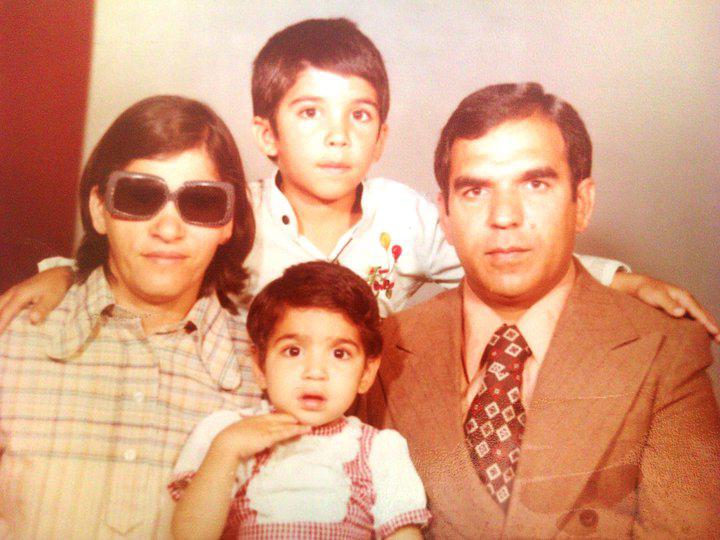
The hardships for me started when I was seven years old.
My mother was blind, so my father had a lot more responsibility than most other men: he took care of us [children], did the housework and was a companion for my mother.
My father and his mother helped my mother with the housework and our upbringing, but before my father’s martyrdom, in 67 [1988] when I was seven years old, my mother had an accident.
In the accident, she suffered a serious head injury and schizophrenia. It is an acute and serious illness that makes a person very isolated. My mother has been at home since then and has been struggling with depression and schizophrenia.
My mother wasn’t able to do much since the accident and my father and grandmother did all the housework. So my father did all this housework, took care of our schoolwork and was also a pastor and led the church (the church was on the lower floor of our house).
In 68 [1989], a year after my mother’s illness, my grandmother had an accident and died. My father was left alone and had to do everything by himself.
The same year Mr. Khomeini died, security pressure on my father increased. My father was in prison from 68 [1989] to 69 [1990]. In general, from 68 [1989] to 69 [1990], we saw very little of him because he was constantly in prison.
The pressure of life had grown stronger on us since 68 [1989], but my father’s detention from the month of Mehr 69 [September/ October 1990] was much, much more serious.
Before that, he was in prison for two to three weeks, then he was given a week off and then returned again to prison.
It was the beginning or middle of the month of Aban [October/ November] when my father went to prison after his leave but never returned.
When he went to prison, we thought he would be back after at most one to three weeks, as usual.
But then, when we were in school on the 18th or 19th of Azar 69 [9/10 December 1990], people in civil clothes who introduced themselves as agents of the Ministry of Intelligence came to our house and said, “On 12 Azar [3 December 1990] your father was executed and now we want to show you where your father is buried.”
At that time, my brother Aria and I, who are twins, were nine years old, and Rashin, my older sister, was 12, and my older brother Ramtin was 15.
We were in school and my mother and the church members gathered and went to my father’s grave.
In ruins near the cemetery of Behesht-e Reza [Reza’s Paradise], they showed us a stone with no writing on it and said that our father was buried there.
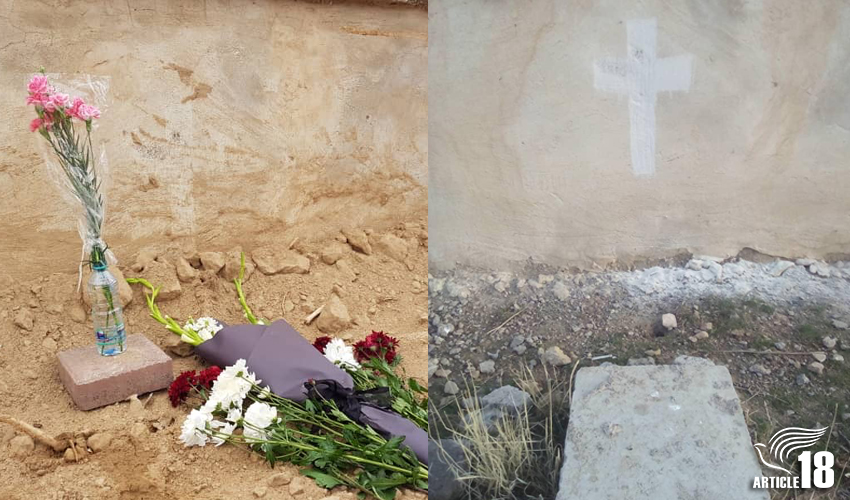
At the time, none of my family members believed that my father had been martyred, but since everyone except the family believed it, we unconsciously believed it, but really we were just waiting for his return.
For years, we were waiting for his return. Every time we heard the bell ring, we thought that today our father must have come, and he was the one who knocked. In truth, 30 years after my father’s martyrdom, we would all believe it if we were ever told, “Your father lives and is in prison.”
For three years after my father’s execution, my mother would take me by the hand and we would go to the Ministry of Intelligence. My mother would say, “Release my husband! If you executed him, show me his body!”
My mother could not believe that he had been executed, and demanded that he be released.
They calmly said: “We have already executed him! He was a traitor and we executed him! “They always said that.”
Often, when I went to the Ministry of Intelligence with my mother, we saw the same person – I don’t know what his position was, but he always sat behind a table – and my mother would ask him, “Why did you execute him?”
And he replied: “He shouldn’t have wanted to be a Christian. He was a traitor, so we executed him.”
After my father’s martyrdom, Pastor Haik Hovsepian Mehr helped us a lot. He brought a member of The Assemblies of God Church of Mashhad, who was a recently divorced woman, to our home.
This lady lived with us, and the church gave her an amount as financial support for her expenses – to be in our house, to live with us and to help us with things like cooking, cleaning and other things.
This went on for about one or two years, during which time she helped us a lot and her presence in our house added colour to our lives.
Pastor Haik also visited us very much and met many of our material and spiritual needs. But after Pastor Haik’s death, we lost his great care for us and the lady in our house married again and left.
We became very lonely. The pressures and hardships that had followed after my father’s death began again with the martyrdom of Pastor Haik in 1373 [1994] and the remarriage of this lady.
It was a very difficult time. After my father was executed and the woman who lived in our house went away, and also the killing of pastors like Haik Hovsepian Mehr, Tateos Michaelian, Ravanbakhsh Yusefi and others, my mother became so lonely and her condition became much worse.
What was written as your father’s cause of death on his death certificate?
Choking by rope.
Some people do not have a good view of the clergy of any religion, for many reasons, and think that they are all one-dimensional people who look down on others and do not do much good. What was your father like?
Not as his daughter, but as a person who lived with my father and saw his way of life, I can say that my father was a true pastor, and I compared him very much with other pastors to see how he lived.
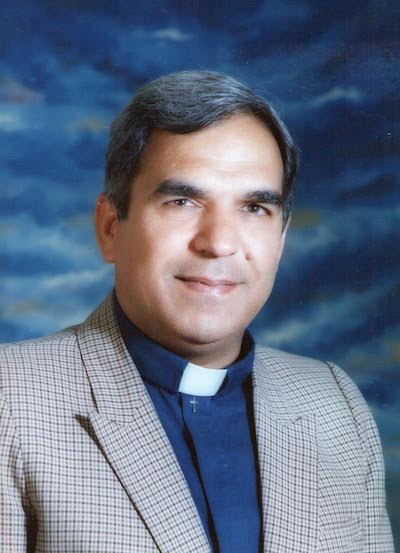
In my opinion, my father had a very different life than other pastors. He chose a blind person when choosing his life partner. This was a very special decision, which arose from his way of thinking and seeing all people and different social classes as equal, and that for him a person with a disability was no different from anyone else.
I remember that my father once brought a person who was a hermaphrodite, about 30 years old, to the church, to serve and teach him. He came to our home a lot and began to see my parents as his parents. I remember whenever pastors and other people came from Tehran and saw him in the church, they often said, “Don’t let him come to the church… At least when we come!” It was like it was a totally alien subject to them!
We had a very small room in our house, which we called “the small room”, which was a guest room, and my father gave shelter to many Christians and non-Christians in that room. There was always someone in our house who my father had given refuge to. He also visited and helped many young people, and they regarded my father as their father.
Basically, I want to say that my father saw and helped people who other people didn’t see and paid no attention to, such as disabled people, hermaphrodites, and the homeless. Let me also say that physically and mentally handicapped people came to our home very often. My father gave them a lot of love, and my mother, who taught disabled people, served them.
So my father helped people who were excluded from society and otherwise ignored.
You said your mother taught the disabled. Please can you expand on that a bit?
My mother was a very active person in society and had a bachelor’s degree in French. She was employed by the Ministry of Education and taught as a primary-school teacher for people with disabilities who were blind or in a wheelchair. She also worked in a clinic for the disabled. I have no expertise in this area, but I know that she taught the mentally handicapped the basic lessons of movement and object recognition, the ability to recognise colours, and how to insert objects into other objects, etc.
Did all the persecution, pressure, and security measures against you lead to the government’s desired outcome?
The pressure placed on us and the church had no impact on our faith and that of other church members. Our whole belief remained firm. Maybe fear was instilled, but it was only temporary.
Is there anything else you would like to say?
The final thing I would like to say is that we live in a world in which not only Christians, but also many people with different beliefs and ways of thoughts other than the politics prevailing in their place of residence, are exposed to political and social pressure around the world and from being unjustly condemned in their surroundings.
But my pain does not come from the rulers, but from people who either share the same creed or mindset, or are sometimes the closest person in your life, who leave you alone under the most difficult conditions that your opponents put you in. I ask all who sing the song of peace not to leave each other alone in difficult situations.
This interview was first published on the Persian-language website peace-mark.org.
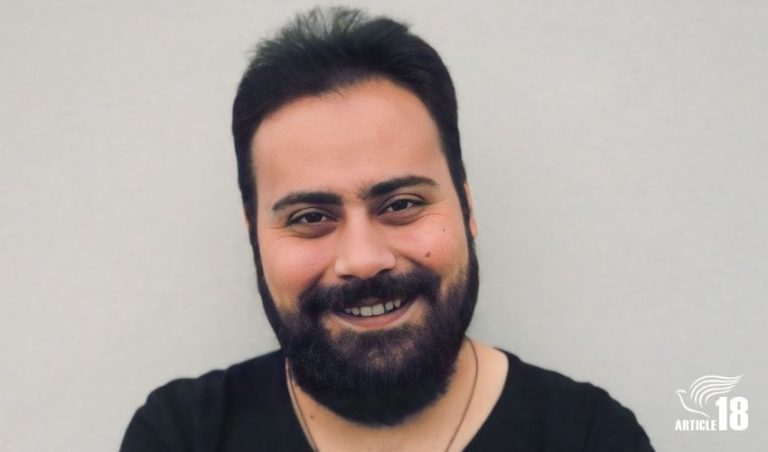
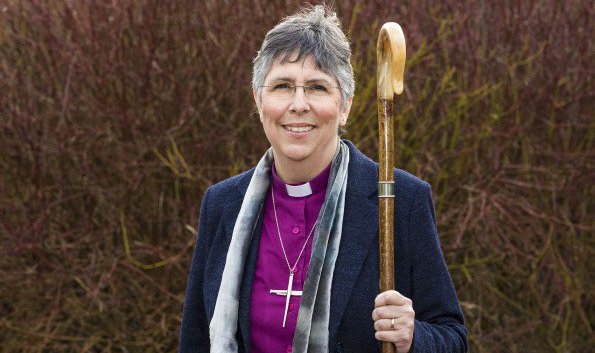
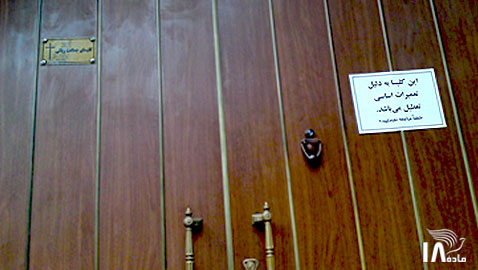
0 Comments
Trackbacks/Pingbacks